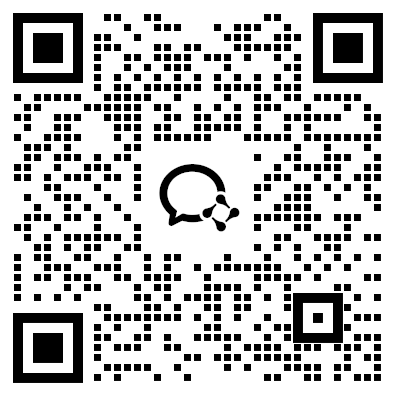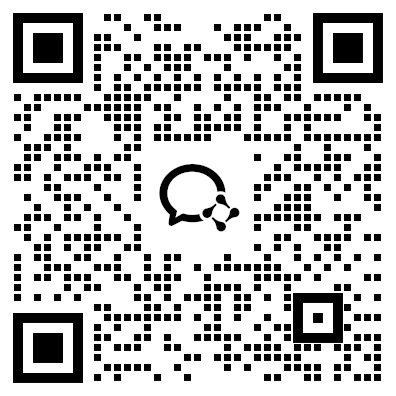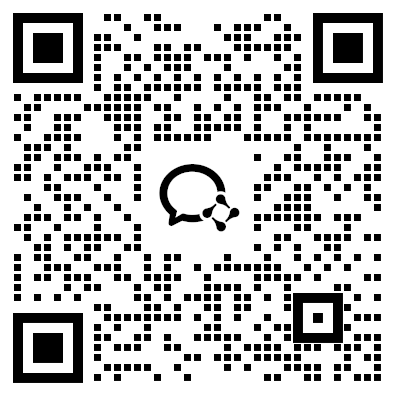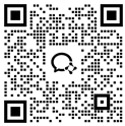选课中心NEW
7099人选课
SAT【0】元讲座
免费学
托福【0】元讲座
免费学
SAT模考网站HOT
39209人预约
托福备考练习HOT
39209人预约
SAT辅导课程NEW
免费报名
AP辅导课程NEW
立即报名
中学生托福课程NEW
立即报名
大学生托福课程NEW
立即报名
【定制】1v1
私人订制
【资料】考前冲刺
精

扫码添加助教
免费领取
备考资料大礼包

扫码关注公众号
Early life
Nelson Mandela belongs to a cadet branch of the Thembu dynasty, which reigns in the Transkei region of South Africa's Eastern Cape Province. He was born in Mvezo, a small village located in the district of Umtata. He has Khoisan ancestry on his mother's side. His patrilineal great-grandfather Ngubengcuka (who died in 1832), ruled as the Inkosi Enkhulu, or king, of the Thembu people. One of the king's sons, named Mandela, became Nelson's grandfather and the source of his surname. However, because he was only the Inkosi's child by a wife of the Ixhiba clan (the so-called "Left-Hand House"), the descendants of his branch of the royal family were not eligible to succeed to the Thembu throne.
Nelson Mandela circa 1937
Political activity
After the 1948 election victory of the Afrikaner-dominated National Party, which supported the apartheid policy of racial segregation, Mandela began actively participating in politics. He led prominently in the ANC's 1952 Defiance Campaign and the 1955 Congress of the People, whose adoption of the Freedom Charter provided the fundamental basis of the anti-apartheid cause. During this time, Mandela and fellow lawyer Oliver Tambo operated the law firm of Mandela and Tambo, providing free or low-cost legal counsel to many blacks who lacked attorney representation.
Mahatma Gandhi influenced Mandela's approach, and subsequently the methods of succeeding generations of South African anti-apartheid activists. (Mandela later took part in the 29–30 January 2007 conference in New Delhi marking the 100th anniversary of Gandhi's introduction of satyagraha (non-violent resistance) in South Africa).
Armed anti-apartheid activities
In 1961 Mandela became leader of the ANC's armed wing, Umkhonto we Sizwe (translated Spear of the Nation, and also abbreviated MK), which he co-founded. He coordinated sabotage campaigns against military and government targets, making plans for a possible guerrilla war if the sabotage failed to end apartheid. Mandela also raised funds for MK abroad and arranged for paramilitary training of the group.
Fellow ANC member Wolfie Kodesh explains the bombing campaign led by Mandela: "When we knew that we [sic] going to start on 16 December 1961, to blast the symbolic places of apartheid, like pass offices, native magistrates courts, and things like that ... post offices and ... the government offices. But we were to do it in such a way that nobody would be hurt, nobody would get killed." Mandela said of Wolfie: "His knowledge of warfare and his first hand battle experience were extremely helpful to me."
Later, mostly in the 1980s, MK, the organisation co-founded by Mandela, waged a guerrilla war against the apartheid government in which many civilians became casualties.. For example, the Church Street bomb in Pretoria killed 19 people and injured 217. After he had become President, Mandela later admitted that the ANC, in its struggle against apartheid, also violated human rights, criticising those in his own party who attempted to remove statements mentioning this from the reports of the Truth and Reconciliation Commission.
Until July 2008 Mandela and ANC party members were barred from entering the United States—except to visit the United Nations headquarters in Manhattan—without a special waiver from the US Secretary of State, because of their South African apartheid government era designation as terrorists.
Arrest and Rivonia trial
On 5 August 1962 Mandela was arrested after living on the run for seventeen months, and was imprisoned in the Johannesburg Fort. The arrest was made possible because the U.S. Central Intelligence Agency (CIA) allegedly tipped off the security police as to Mandela's whereabouts and disguise. Three days later, the charges of leading workers to strike in 1961 and leaving the country illegally were read to him during a court appearance. On 25 October 1962, Mandela was sentenced to five years in prison.
While Mandela was imprisoned, police arrested prominent ANC leaders on 11 July 1963, at Liliesleaf Farm, Rivonia, north of Johannesburg. Mandela was brought in, and at the Rivonia Trial they were charged by the chief prosecutor Dr. Percy Yutar with four charges of the capital crimes of sabotage (which Mandela admitted) and crimes which were equivalent to treason, but easier for the government to prove. They were also charged with plotting a foreign invasion of South Africa, which Mandela denied. The specifics of the charges to which Mandela admitted complicity involved conspiring with the African National Congress and South African Communist Party to the use of explosives to destroy water, electrical, and gas utilities in the Republic of South Africa.
SAT水平能力测试【0元免费测试】
本文关键字: SAT写作素材

 资料下载
资料下载
【SAT】SAT官方指南题目合集10套
发布时间:2024-04-15添加新东方在线美本助教号
回复【美本资料】获取
SAT阅读+文法+数学专项题型练习册
发布时间:2024-05-31添加新东方在线美本助教号
回复【美本资料】获取
机考SAT-可汗练习题
发布时间:2024-02-29添加新东方在线美本助教号
回复【美本资料】获取
机考SAT-CB官方样题
发布时间:2024-02-29添加新东方在线美本助教号
回复【美本资料】获取
《学科留学百问 (AP-IB-A Level)》
发布时间:2023-02-22添加新东方在线美本助教号
回复【美本资料】获取
2024中国学生留学备考白皮书
发布时间:2023-02-22添加新东方在线美本助教号
回复【美本资料】获取
2023北美考试一本通高中篇
发布时间:2023-02-22添加新东方在线美本助教号
回复【美本资料】获取
新东方SAT阅读讲义
发布时间:2023-02-06添加新东方在线美本助教号
回复【美本资料】获取
2023北美考试一本通高中篇
发布时间:2024-02-29关注美本留学家长帮微信订阅号
回复【美本资料】获取
2024中国学生留学备考白皮书
发布时间:2019-12-19添加新东方在线美本助教号
回复【美本】获取
《学科留学百问 (AP-IB-A Level)》
发布时间:2019-12-19添加新东方在线美本助教号
回复【美本资料】获取
机考SAT-CB官方样题
发布时间:2019-12-19添加新东方在线美本助教号
回复【美本资料】获取
机考SAT-可汗练习题
发布时间:2019-12-19添加新东方在线美本助教号
回复【美本资料】获取
SAT阅读+文法+数学专项题型练习册
发布时间:2019-11-28添加新东方在线美本助教号
回复【美本资料】获取

添加美本助教
即可获取美本资料大礼包

 推荐阅读
推荐阅读
在2024年的QS学科排名中,英国大学再次展现了他们在教育领域的卓越表现。这次排名中,英国大学在16个学科领域取得了世界第一的成绩,为其在全球教育界树立了新的标杆。
来源 : 网络整理 2024-04-23 11:16:49 关键字 : QS学科排名,英国大学qs学科排名
市场营销作为当代商业领域中至关重要的学科之一,一直备受关注。为了帮助读者更好地了解2024年全球市场营销学科的最新发展和排名情况,本文将介绍QS世界大学市场营销学科的排名榜单,并提供相关的官网链接供读者参考。
来源 : 网络整理 2024-04-23 10:21:37 关键字 : 市场营销学科排名,qs学科排名
备受关注的2024年酒店管理学科全球大学排名榜单终于揭晓,给全球学子带来了巨大的惊喜和期待。作为酒店管理学科领域的权威排行榜,该榜单汇集了各大知名院校和学者的投票和研究结果,为学生们提供了一份权威的选校参考指南。
来源 : 网络整理 2024-04-23 10:15:16 关键字 : 酒店管理学科排名,qs学科排名
每年QS世界大学统计与运筹学学科排名榜单都受到广泛关注,2024年的排名榜单也引起了极大的关注和讨论。首先,让我们来看一下2024QS世界大学统计与运筹学学科排名榜单的前几名。
来源 : 网络整理 2024-04-23 10:10:12 关键字 : 统计与运筹学学科排名,qs学科排名
随着2024QS世界大学经济与计量经济学学科排名榜单的发布,我们可以全面了解到这一领域的最新动态。本文将为您详细介绍2024QS世界大学经济与计量经济学学科排名榜单,解读其中的重点内容,并对我国相关大学在排名中的表现进行分析。
来源 : 网络整理 2024-04-23 10:03:55 关键字 : 经济与计量经济学学科排名,qs学科排名
最新发布的2024QS世界大学社会政策与行政管理排名榜单已经震动了全球教育界。这一排名榜单是依据世界知名教育机构QS(Quacquarelli Symonds)的权威数据和专业评估,为我们提供了一份准确且独具参考价值的全球大学排名。
来源 : 网络整理 2024-04-22 17:01:59 关键字 : 社会政策与行政管理学科排名,qs学科排名
社会学作为一门独具特色的学科,对于了解人类社会的发展和变迁起着举足轻重的作用。每年,QS世界大学社会学排名榜单会揭晓全球各大高等院校在这一领域的表现,并成为了各界人士瞩目的焦点。今天,让我们一起来揭晓2024年的榜单,并深入探讨排名的背后故事。
来源 : 网络整理 2024-04-22 16:56:00 关键字 : 社会学学科排名,qs学科排名
在当今竞争激烈的社会中,选择一所优秀的大学对我们的未来发展至关重要。随着法律行业的日益发展和全球化的趋势,了解和掌握国际上优秀的法律学府成为了无比重要的事情。而2024QS世界大学法律与法律研究排名榜单正是我们选择合适学府的权威指南。
来源 : 网络整理 2024-04-22 16:51:49 关键字 : 法律与法律研究学科排名,qs学科排名
2024QS世界大学教育与培训排名榜单,作为权威的评估之一,给出了全球范围内的学府排名。本次榜单覆盖了各个学科领域,综合评估了学校的教学质量、师资水平、科研实力等多个方面,旨在为学生和家长提供一个参考。
来源 : 网络整理 2024-04-22 16:48:08 关键字 : 教育与培训学科排名,qs学科排名
政治学作为一门研究人类政治行为、政治制度、政治思想等内容的学科,一直备受关注。近日,2024QS世界大学排名公布了最新的政治学学科排名榜单,引起了广泛的关注和讨论。
来源 : 网络整理 2024-04-22 16:38:53 关键字 : 政治学学科排名,qs学科排名

自动领取备考资料大礼包

1. 打开手机微信【扫一扫】,识别上方二维码;
2.添加【美本助教】,自动领取留学备考资料大礼包。

 SAT直播/精讲课
SAT直播/精讲课
 托福精讲系统课(旗舰版)
托福精讲系统课(旗舰版)
 托福直播VIP小班
托福直播VIP小班
 公开讲座
公开讲座
真实了解自己的水平,为备考做好规划!
价格 : ¥0元
真实了解自己的水平,为备考做好规划!
价格 : ¥0元
真实了解自己的水平,为备考做好规划!
价格 : ¥0元

 资料下载
资料下载
添加新东方在线美本助教号
回复【美本资料】获取
添加新东方在线美本助教号
回复【美本资料】获取
添加新东方在线美本助教号
回复【美本资料】获取
添加新东方在线美本助教号
回复【美本资料】获取
添加新东方在线美本助教号
回复【美本资料】获取
添加新东方在线美本助教号
回复【美本资料】获取
添加新东方在线美本助教号
回复【美本资料】获取
添加新东方在线美本助教号
回复【美本资料】获取
关注美本留学家长帮微信订阅号
回复【美本资料】获取
添加新东方在线美本助教号
回复【美本】获取
添加新东方在线美本助教号
回复【美本资料】获取
添加新东方在线美本助教号
回复【美本资料】获取
添加新东方在线美本助教号
回复【美本资料】获取
添加新东方在线美本助教号
回复【美本资料】获取

自动领取备考资料大礼包

1. 打开手机微信【扫一扫】,识别上方二维码;
2.添加【Ella助教】,自动领取留学备考资料大礼包。
 阅读排行榜
阅读排行榜
 相关内容
相关内容